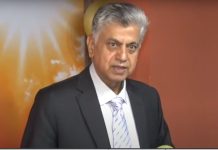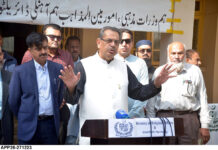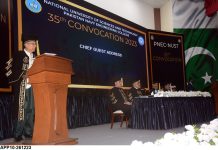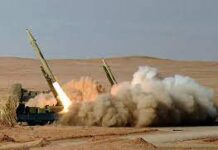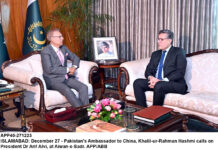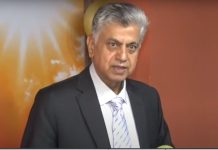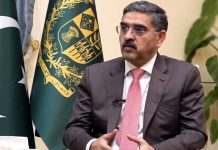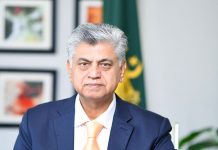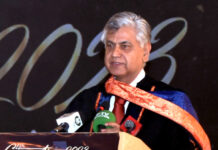
Addressing the participants of National Parliamentary Conference on Kashmir, she said that the Pakistani media, along with international media, became the voice of besieged Kashmiris, and the EU Parliament discussed the Kashmir dispute after twelve years. She said this achievement was made because of effective diplomacy of Pakistan under the dynamic leadership of Prime Minister Imran Khan. She said the world had rejected the narrative of India on the situation in Occupied Kashmir and has supported the stance of Pakistan. She said that the Kashmir issue was discussed at United Nations Security Council after five decades and Organisation of Islamic Cooperation (OIC) endorsed Pakistan’s stance on the issue.
She said that Pakistan was incomplete without Kashmir and every Pakistani felt the pain of Kashmiri brethren. Kashmir was above the politics and it was an issue of survival of the nation, she remarked.
Firdous said this conference was reflective of the fact that the entire political leadership of Pakistan was united for Kashmir cause above political divides.
She assured that present government would not disappoint the nation and Kashmiri people.
She said the prime minister’s address to the UN General Assembly session on September 27 would be reflective of the aspirations of the people of Kashmir.
Firdous said roadmap and way forward for resolution of Kashmir would be formulated after consultations with all the stakeholders and every act would be in accordance with the aspirations of the people. She said that Indian repression in face of Kashmiris’ steadfastness and determination was breathing its last.
She said that the sacrifices being rendered by Kashmiri people would not go in vain and dark night of Indian slavery would end and they would soon see the dawn of independence.
She said that in Pakistan, minorities enjoyed fundamental rights whereas in India hardline mindset was prevailing and minorities’ rights were trampled. This was the basis of the two-nation theory, and Quaid-i-Azam’s speech in the Constituent Assembly of Pakistan on August 11, 1947 set the parameters for minorities rights. She said that Prime Minister Imran Khan wanted to transform Pakistan on the model of the state of Medina where all minorities were safe and enjoyed equal rights.
Separately, Firdous said Pakistan and South Korea enjoyed cordial relations in diverse fields and there was need to further foster sociocultural and economic ties. Addressing the launching ceremony of Global Peace magazine, she highlighted the hard work of South Korean nation for the development of their country during the first decade of 21st century.
The event was attended by a South Korean delegation, besides politicians, lawyers and social activists.
Terming the South Koreans a resilient nation, Firdous said they worked very hard to compete with Japan in the technological sector and the credit for that went to their leadership.
The Korean women entrepreneurs had played a great role in their country’s development and Pakistan was also required to replicate that model to achieve economic prosperity, she added.
The special assistant said the Pakistan Tehreek-e-Insaf government was going to follow the best practices adopted by Seoul in technological, agricultural and industrial sectors.
Firdous said Pakistan was supporting the Kashmiris’ just struggle for right to self-determination and asked the Korean delegation to raise their voice for them whose fundamental rights were trampled by the Indian occupation forces, especially after August 5 when India unilaterally stripped the held Kashmir of its special status.
“Kashmir is not a political issue; it is rather a humanitarian matter which needs the support from the whole world,” she remarked.
Appreciating the launch of the magazine, she said it would help improve Pakistan’s positive image and promote its narrative globally.


